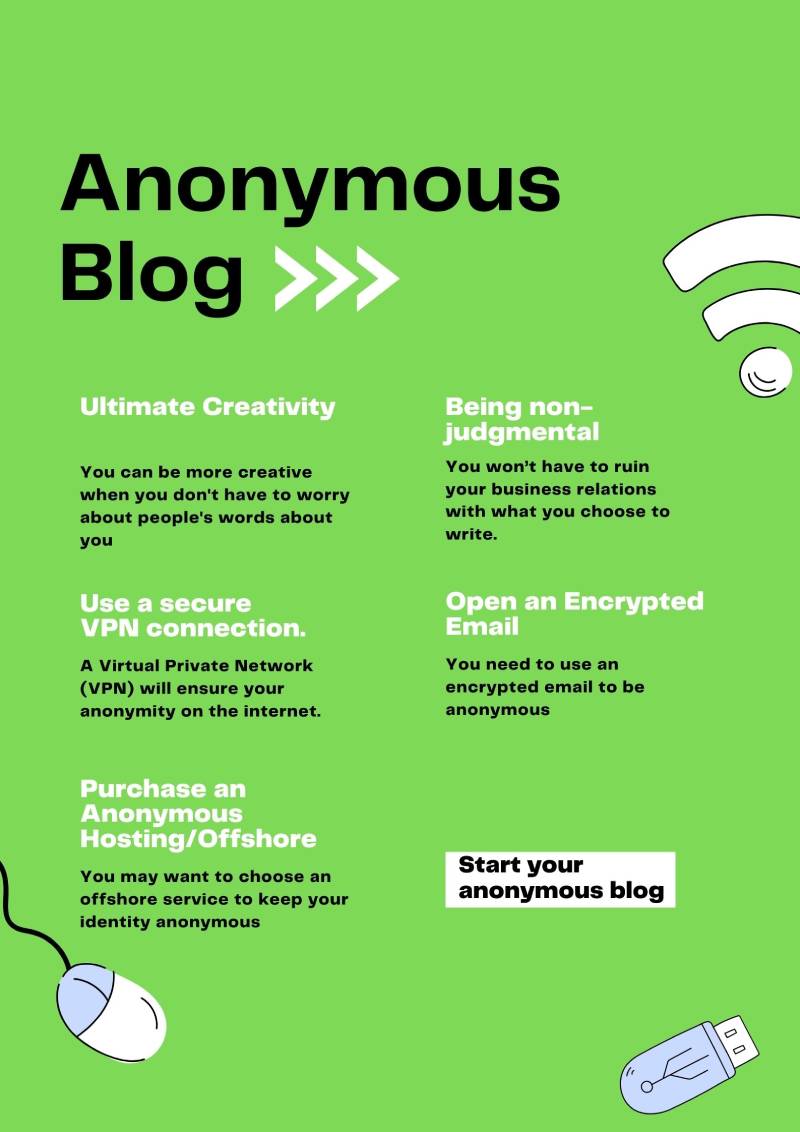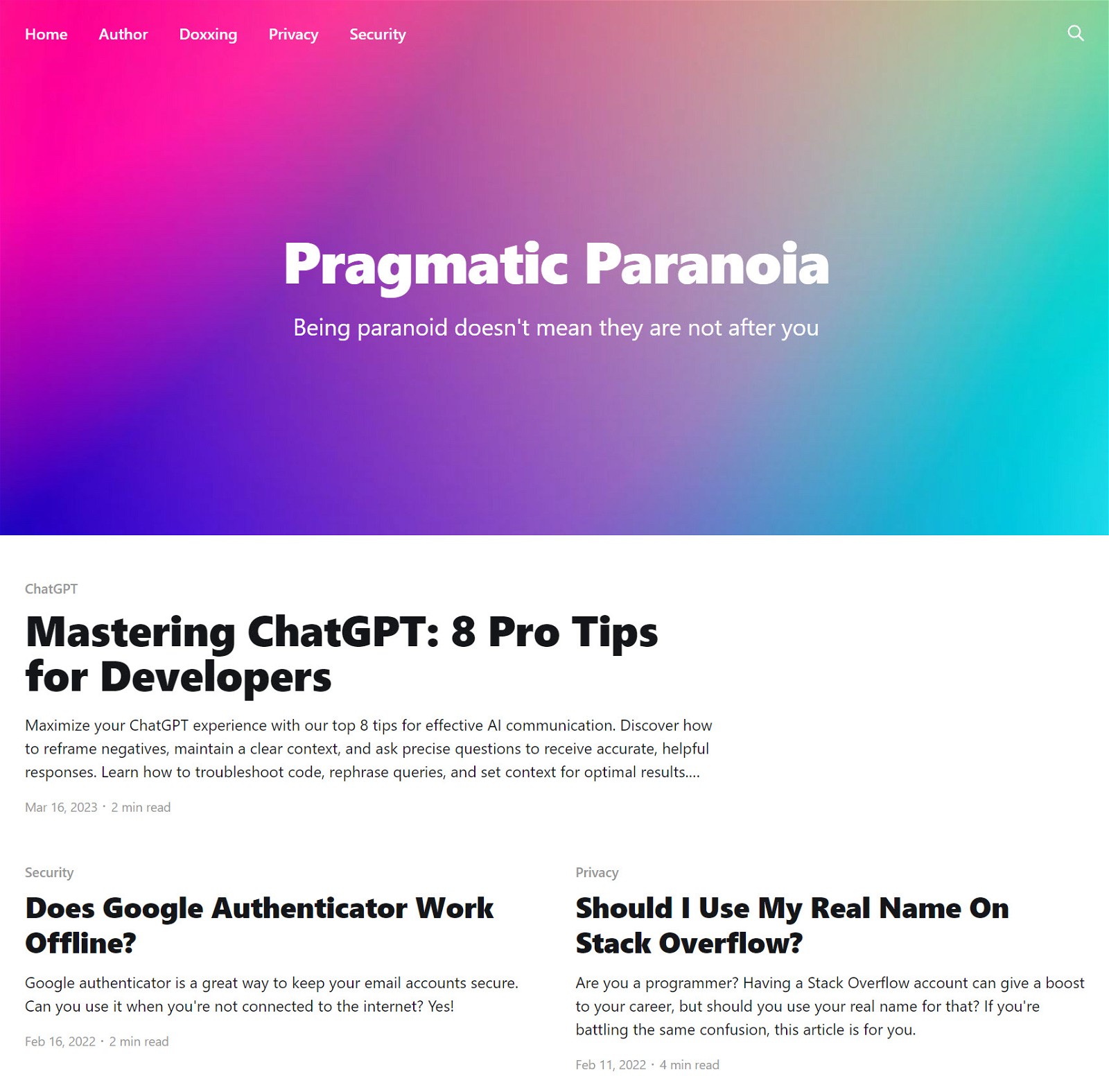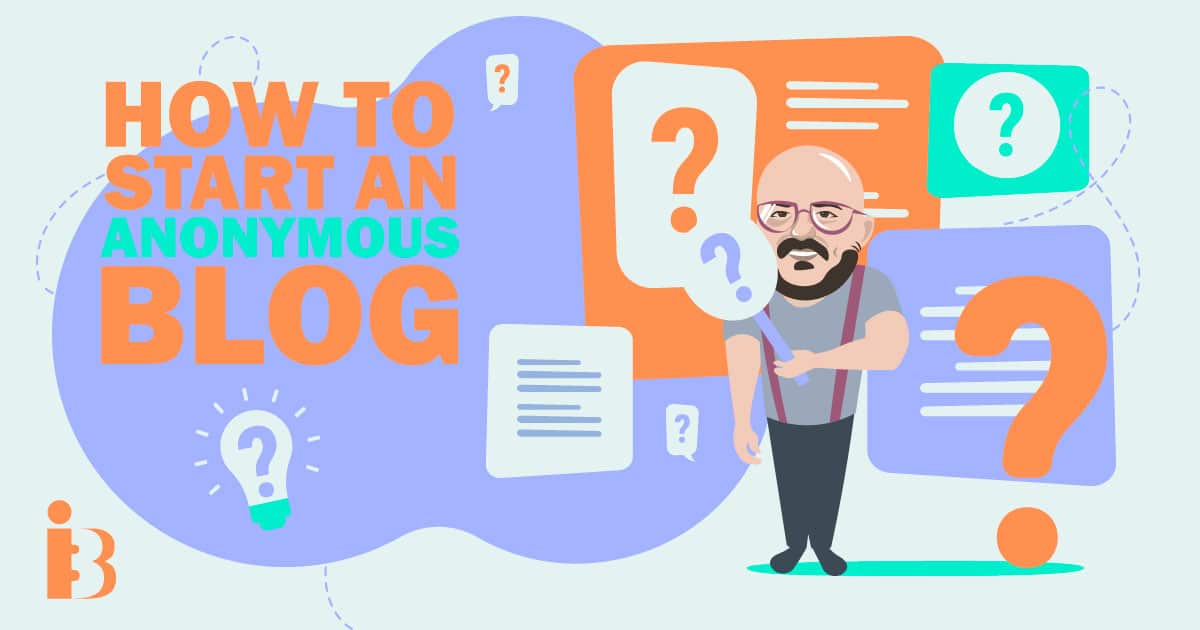Why Anonymity Matters in the Digital Age
In today’s digital landscape, anonymity has become a vital aspect of online interactions. With the rise of social media and blogging, individuals are sharing more personal information than ever before, making it essential to protect one’s identity. Anonymous blogging, in particular, provides a safe space for self-expression and honest discussion, allowing individuals to share their thoughts and opinions without fear of retribution or judgment.
The importance of anonymity online cannot be overstated. By maintaining anonymity, individuals can avoid the risks associated with revealing personal information, such as identity theft, harassment, and cyberbullying. Moreover, anonymous blogging enables individuals to express themselves freely, without the constraints of societal expectations or fear of repercussions.
For those seeking to start an anonymous blog, it is crucial to understand the benefits of anonymity in the digital age. By doing so, they can create a secure and private online environment, where they can share their thoughts and opinions without compromising their identity. As we will explore in this article, starting an anonymous blog requires careful consideration of several factors, including platform selection, security measures, and content creation.
So, how do you start an anonymous blog? The first step is to choose a platform that allows for anonymity and provides adequate security measures. This may involve selecting a platform that offers pseudonymity, where users can create a username that is not linked to their real identity. Additionally, it is essential to configure privacy settings to ensure that personal information is not shared publicly.
By taking these steps, individuals can create a secure and private online environment, where they can express themselves freely and maintain their anonymity. In the next section, we will explore the different types of blogging platforms available and discuss the pros and cons of each.
Choosing the Right Platform for Your Anonymous Blog
When it comes to starting an anonymous blog, selecting the right platform is crucial. With numerous options available, it’s essential to choose a platform that allows for anonymity and provides adequate security measures. In this section, we’ll explore the different types of blogging platforms available and discuss the pros and cons of each.
WordPress is a popular choice among bloggers, offering a range of customizable themes and plugins. However, WordPress requires users to create an account, which may compromise anonymity. To maintain anonymity on WordPress, users can create a pseudonym and use a VPN to mask their IP address.
Blogger, on the other hand, is a free blogging platform that allows users to create a blog without revealing their identity. However, Blogger has limited customization options and may not offer the same level of security as other platforms.
Medium is another popular platform that allows users to create a blog without revealing their identity. Medium offers a range of customizable themes and has a strong focus on community engagement. However, Medium’s terms of service require users to provide some personal information, which may compromise anonymity.
When choosing a platform for your anonymous blog, it’s essential to consider the level of anonymity offered. Look for platforms that allow users to create a pseudonym and offer robust security measures, such as encryption and two-factor authentication. Additionally, consider the platform’s terms of service and ensure that they align with your anonymity goals.
Ultimately, the right platform for your anonymous blog will depend on your specific needs and goals. By carefully considering the pros and cons of each platform, you can create a secure and private online environment that allows you to express yourself freely.
Setting Up a Secure and Private Blogging Environment
Once you’ve chosen a platform for your anonymous blog, it’s essential to set up a secure and private blogging environment. This involves selecting a domain name, choosing a web host, and configuring privacy settings. In this section, we’ll provide step-by-step instructions on how to set up a secure and private blogging environment.
Choosing a domain name is a critical step in setting up your anonymous blog. When selecting a domain name, consider using a registrar that offers anonymous registration options. This will help protect your identity and maintain your anonymity. Additionally, choose a domain name that is not easily linked to your real identity.
When it comes to choosing a web host, look for a provider that offers robust security measures, such as encryption and two-factor authentication. Additionally, consider using a web host that offers anonymous hosting options, such as a virtual private server (VPS) or a dedicated server.
Configuring privacy settings is also essential for maintaining anonymity. Make sure to disable any features that may compromise your anonymity, such as IP logging or comment tracking. Additionally, consider using a plugin or extension that helps to protect your anonymity, such as a VPN or a proxy server.
By following these steps, you can set up a secure and private blogging environment that protects your anonymity. Remember, maintaining anonymity requires ongoing effort and attention. Regularly review your blog’s settings and update your security measures to ensure your anonymity remains intact.
When setting up your anonymous blog, it’s also essential to consider how to manage comments and engage with readers while maintaining your anonymity. In the next section, we’ll explore the importance of managing comments and engaging with readers while maintaining anonymity.
Creating a Pseudonym and Maintaining Anonymity
Creating a pseudonym is a crucial step in maintaining anonymity while blogging. A pseudonym is a fictional name or identity that you can use to conceal your real identity. When creating a pseudonym, it’s essential to choose a name that is not easily linked to your real identity.
One way to create a pseudonym is to use a combination of letters and numbers that are not easily guessable. You can also use a pseudonym generator tool to help you create a unique and anonymous name. Additionally, consider using a pseudonym that is not easily searchable online, to minimize the risk of being identified.
Once you have created a pseudonym, it’s essential to maintain anonymity by avoiding personal details in your blog posts. This includes avoiding mentions of your real name, location, or any other identifying information. You should also be mindful of your online behavior, avoiding any actions that could compromise your anonymity.
Using a VPN (Virtual Private Network) is also an effective way to maintain anonymity while blogging. A VPN can help to mask your IP address, making it difficult for anyone to track your online activity. Additionally, consider using a proxy server or a Tor browser to further protect your anonymity.
By creating a pseudonym and maintaining anonymity, you can protect your identity and maintain the freedom to express yourself online without fear of retribution or judgment. In the next section, we’ll explore the importance of writing high-quality, engaging content while maintaining anonymity.
Writing and Publishing Anonymous Content
When it comes to writing and publishing anonymous content, there are several key considerations to keep in mind. The primary goal is to create high-quality, engaging content that resonates with readers without revealing personal details. To achieve this, it’s essential to develop a writing style that is both informative and entertaining, while maintaining a level of detachment from personal experiences and opinions.
One effective approach is to focus on topics that are relevant to a wide audience, rather than drawing from personal experiences. This can include industry trends, news analysis, or thought leadership pieces. By doing so, the writer can establish themselves as a knowledgeable and authoritative voice in their field without compromising their anonymity.
Another crucial aspect of writing anonymous content is to avoid using personal pronouns or references that could potentially reveal the writer’s identity. This includes avoiding mentions of specific locations, employers, or personal relationships. Instead, the writer should focus on using generic language and examples that illustrate their points without revealing too much about themselves.
In addition to the writing style, it’s also important to consider the publishing process when it comes to anonymous content. This includes choosing a platform that allows for anonymous publishing, such as a blog or online magazine that doesn’t require real names or personal details. It’s also essential to use a pseudonym or pen name that is not easily traceable back to the writer’s real identity.
When publishing anonymous content, it’s also important to be mindful of the potential risks and consequences. This includes being aware of the potential for online harassment or backlash, as well as the risk of being “outed” or having one’s identity revealed. To mitigate these risks, it’s essential to have a plan in place for managing comments and engaging with readers, as well as being prepared for any potential fallout.
By following these guidelines and being mindful of the potential risks and challenges, it’s possible to write and publish high-quality anonymous content that resonates with readers and maintains the writer’s anonymity. Whether you’re looking to start an anonymous blog or simply want to explore the world of anonymous writing, the key is to be creative, informative, and respectful of your readers’ boundaries.
Managing Comments and Engaging with Readers
As an anonymous blogger, managing comments and engaging with readers can be a delicate task. On one hand, you want to foster a sense of community and encourage discussion around your content. On the other hand, you need to maintain your anonymity and avoid revealing too much about yourself. Here are some tips on how to manage comments and engage with readers while keeping your identity hidden.
First and foremost, it’s essential to use moderation tools to manage comments on your blog. Most blogging platforms offer built-in comment moderation features that allow you to approve or reject comments before they are published. This can help you filter out spam comments and prevent trolls from disrupting your community.
When responding to comments, it’s crucial to maintain a level of detachment and avoid revealing personal details. Avoid using personal pronouns or references that could potentially reveal your identity. Instead, focus on addressing the commenter’s question or point and providing a thoughtful response.
Another way to engage with readers is to use a pseudonym or pen name when responding to comments. This can help you maintain a level of anonymity while still being able to interact with your readers. Just be sure to keep your pseudonym consistent across all your online interactions to avoid raising suspicions.
Building a community around your blog can be a great way to encourage engagement and discussion. However, it’s essential to be mindful of your anonymity when interacting with readers. Avoid sharing personal details or photos, and be cautious when using social media to promote your blog.
Using a VPN (Virtual Private Network) can also help you maintain your anonymity when engaging with readers. A VPN can mask your IP address and make it difficult for others to track your online activity. This can be especially useful when responding to comments or engaging with readers on social media.
Finally, it’s essential to be mindful of your online behavior and avoid doing anything that could potentially reveal your identity. Avoid using the same username or pseudonym across multiple platforms, and be cautious when sharing personal details or photos online.
By following these tips, you can manage comments and engage with readers while maintaining your anonymity. Remember, the key to successful anonymous blogging is to be mindful of your online behavior and take steps to protect your identity. With a little practice and patience, you can build a thriving community around your blog without revealing your true identity.
Protecting Your Anonymity in the Long Term
Maintaining anonymity is an ongoing process that requires continuous effort and attention. As an anonymous blogger, it’s essential to stay vigilant and adapt to changes in the online landscape to protect your identity. Here are some tips on how to protect your anonymity in the long term.
Monitoring online activity is crucial to maintaining anonymity. Regularly check your blog’s analytics to see if there are any suspicious patterns or IP addresses that may indicate someone is trying to uncover your identity. Use tools like Google Analytics or Jetpack to track your blog’s traffic and identify potential security threats.
Updating security measures is also essential to protecting your anonymity. Regularly update your blog’s software, plugins, and themes to ensure you have the latest security patches. Use strong passwords and consider using a password manager to generate and store unique, complex passwords for each of your online accounts.
Being mindful of changes in online behavior is also important. Be aware of changes in your online habits and avoid doing anything that could potentially reveal your identity. Avoid using the same username or pseudonym across multiple platforms, and be cautious when sharing personal details or photos online.
Using a VPN (Virtual Private Network) can also help protect your anonymity in the long term. A VPN can mask your IP address and make it difficult for others to track your online activity. Consider using a VPN when accessing your blog or engaging with readers online.
Additionally, consider using a secure email service that allows you to create a new email address for your anonymous blog. This can help you keep your personal and anonymous online activities separate and reduce the risk of being identified.
It’s also essential to be aware of the potential risks of doxing, which is the act of publicly revealing someone’s personal information online. Be cautious when sharing information online, and avoid sharing personal details or photos that could be used to identify you.
Finally, consider using a pseudonym or pen name that is not easily traceable back to your real identity. Use a consistent pseudonym across all your online interactions, and avoid using the same pseudonym across multiple platforms.
By following these tips, you can protect your anonymity in the long term and maintain the freedom to express yourself online without fear of retribution or judgment. Remember, maintaining anonymity is an ongoing process that requires continuous effort and attention.
Conclusion: The Freedom of Anonymous Blogging
Anonymous blogging offers a unique opportunity for individuals to express themselves freely and honestly, without fear of retribution or judgment. By following the steps outlined in this guide, readers can create a secure and private online identity, allowing them to share their thoughts and ideas with the world.
The benefits of anonymous blogging are numerous. It provides a safe space for self-expression and honest discussion, allowing individuals to share their opinions and experiences without fear of reprisal. It also allows for greater creativity and freedom of expression, as individuals are not constrained by the need to conform to societal norms or expectations.
However, maintaining anonymity requires ongoing effort and attention. It’s essential to stay vigilant and adapt to changes in the online landscape to protect your identity. By following the tips outlined in this guide, readers can ensure that their anonymity is maintained, and they can continue to express themselves freely and honestly online.
If you’re considering starting an anonymous blog, don’t be discouraged by the potential challenges. With the right tools and knowledge, you can create a secure and private online identity, and share your thoughts and ideas with the world. Remember, the freedom to express yourself anonymously is a powerful tool, and it’s worth taking the time to protect it.
So, how do you start an anonymous blog? By following the steps outlined in this guide, you can create a secure and private online identity, and begin sharing your thoughts and ideas with the world. Whether you’re looking to express yourself creatively, share your opinions and experiences, or simply connect with others, anonymous blogging offers a unique and powerful opportunity for self-expression and connection.
In conclusion, anonymous blogging offers a unique and powerful opportunity for self-expression and connection. By following the steps outlined in this guide, readers can create a secure and private online identity, and share their thoughts and ideas with the world. Remember, the freedom to express yourself anonymously is a powerful tool, and it’s worth taking the time to protect it.







